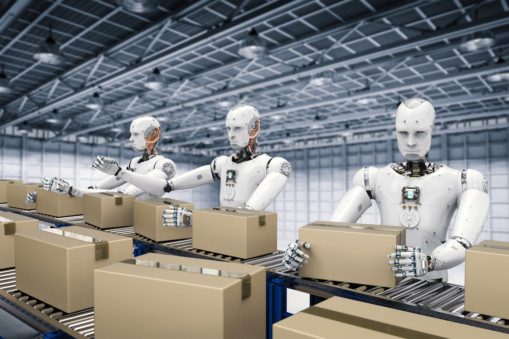
There is a frontier excitement around artificial intelligence. As the founder of a tech company, I have this year found myself in the clutches of giddy AI marketing folk, wide-eyed and expectant, heralding the revolution to come — the accelerating advances in computational speed and decision-making contain a multitude of world-changing possibilities, they say. The buzz is gradually infiltrating the political classes — recently, British Prime Minister Theresa May announced that AI would be harnessed to save 22,000 lives a year by 2033, and plans published by University College London Hospitals (UCLH) outlined how AI could soon replace doctors for a range of diagnostic tasks.
Accompanying the excitement is a sense of palpable inevitability — that technological advancement and AI are unstoppable; they are on the right side of history, much as there was an inevitability to pit closures in the UK throughout the 70s and 80s. There was a similar inevitability around the advancement of globalisation and immigration across the west through the 1990s and 2000s. Deindustrialisation, globalisation, and mass immigration were seen as epochal, inevitable societal changes; as bigger, more historically vital, than the parochial dust in their wake. And perhaps they were. But there is dust, nonetheless. Thousands of once industrial communities; towns with gaping factory voids; workers displaced by immigrant labour during financial downturns: these were the collateral damage, martyrs for advancement.
And there’s the catch. Society does not mirror the zero-sum equilibrium of financial markets. Those who lose out will not simply accept their lot, especially if their defeat is compounded by governmental neglect. For the forgotten of industrial Britain and the displaced of the US Rust Belt, their anger fermented over decades and then exploded with generational consequences through Brexit and Trump.
And it’s all about to happen again. As tech giants race to create autonomous cars and trucks, systems that displace accountants and book-keepers, advanced factory robotics free of human inefficiencies, and diagnostic tools that will gradually replace doctors, millions of workers are standing by, their careers dangling under a guillotine. While they wait, they see their dissipating wealth accumulating in Silicon Valley and its tech neighbour-states across the globe. They see billionaire technologists firing cars into space and elite techtopias taking hold in once-diverse cities, where the poor have become a pest to progress.
Heralding the revolution
When the guillotine drops, and the discombobulated mobs descend on the Amazon data centres, or the headquarters of DeepMind, we cannot say we didn’t see it coming. And yet we are doing nothing about it. Instead, we’re getting drunk on the upside, again. Because when viewed from an economically gloomy, sclerotic Westminster base, the progressive glow of technological advancement is irresistible. We are heralding the inevitable — probably wonderful — revolution to come, with little thought for the collateral damage that will accompany it. The bounty that awaits us — the progress, the lives saved — will all justify the means. This time, it doesn’t have to be zero-sum. We can and should champion and support the world-changing and inevitable advancement of technology and AI. But we can also start preparing for its consequences now.
In the UK, for instance, there is a need for a Ministry for the Replaced-by-AI. It could be a governmental thinktank, preparing for the inevitable. Universal basic income has been damned as “socialism in disguise”, but it is most probably an idea before its time; the idea before the idea. When the time comes, we will need it, or something like it. It may not appear as a simple cash benefit. Perhaps it won’t be universal, but apportioned to those who need it most. It could be enveloped into the welfare state; seen as a natural extension for the 21st century. Maybe it will be something entirely different — a vast, national reskilling and retraining initiative aimed at those whose industries are most threatened. It could be sourced — gulp — from a technology tax on those developing the most job-threatening technologies.
It is also a significant opportunity for the political centre. The centre’s current beleaguerment is, arguably, a justifiable punishment. From Blair to Cameron, successive centrist governments in the UK buried the downside of macroeconomic change. It would be another generation’s problem. Over decades, maybe centuries, these things would even themselves out. We will adapt. Work will evolve.
Perhaps. But we have seen what happens in between. While you are waiting for the world to acclimatise — for the big ideas to bed in — the swirl of listless anger can be corralled and exploited. During every job-killing technological breakthrough over the next decade, the Trumps and Nigel Farages of the future will be waiting to pounce. They must be preemptively defeated.
— Guardian News & Media Ltd
Benji Lanyado is a technology journalist and developer.









